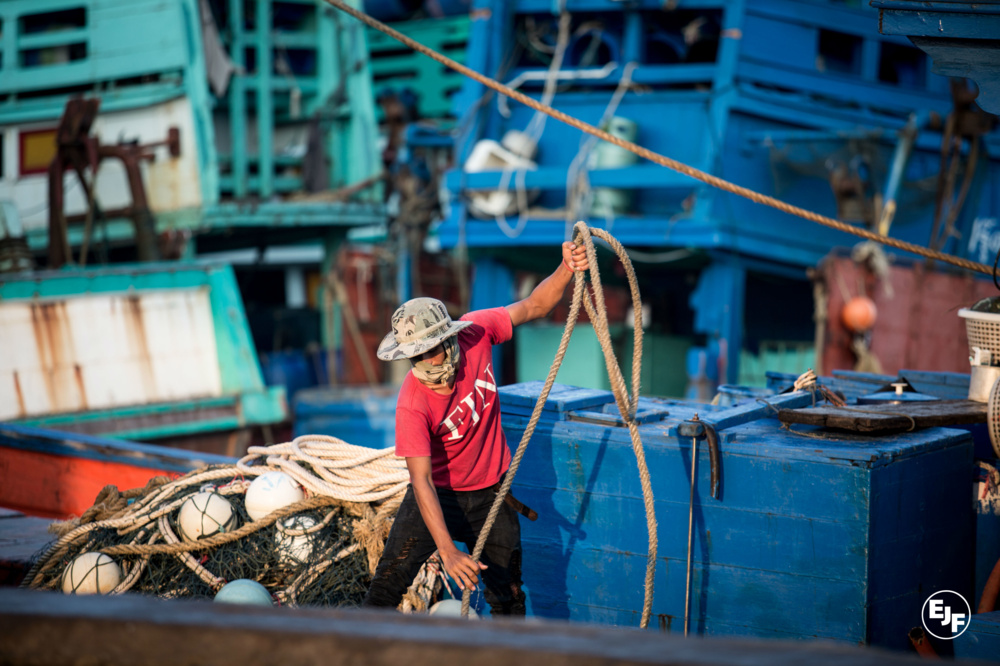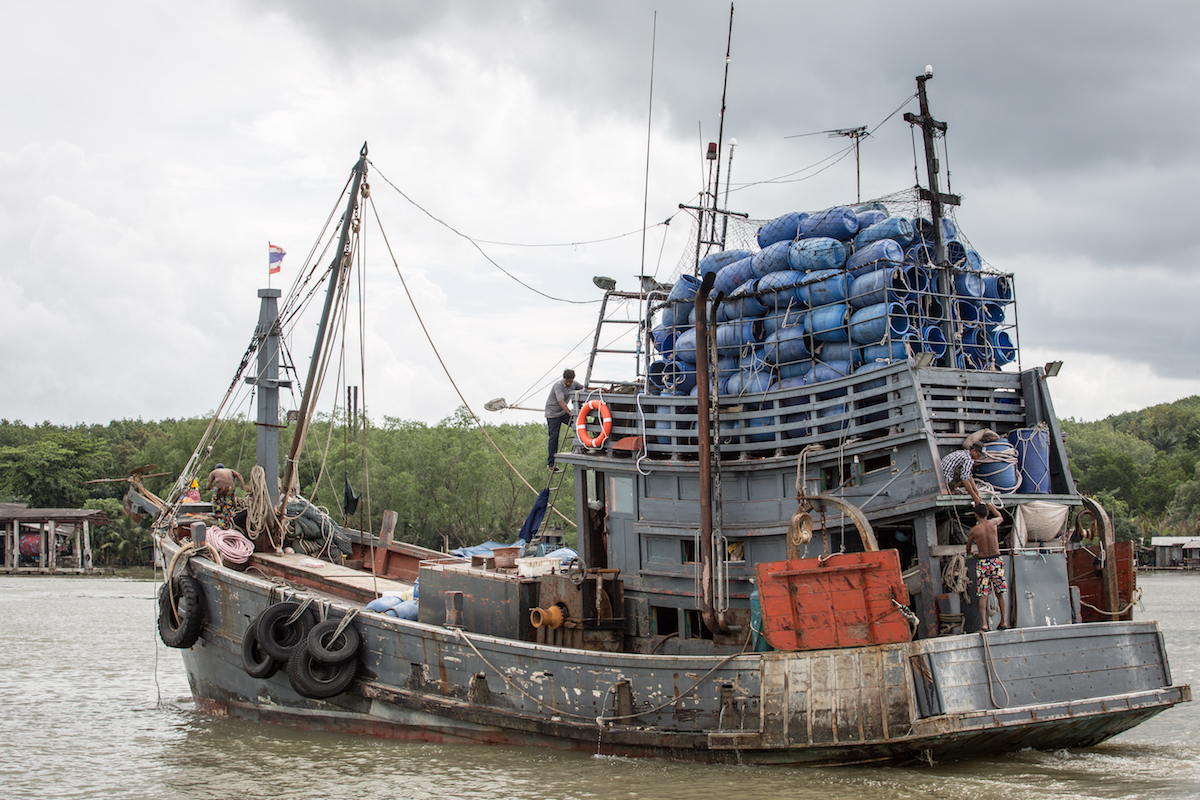
Eliminating modern slavery from supply chains
The abolition of slavery in the 19thcentury did not put an end to human exploitation. Today, the International Labour Organization estimates 40.3 million people are still enslaved. A crucial part of tackling this problem is eradicating it from supply chains. Tragically, our globalised world means that consumers on one side of the world may be unwittingly fuelling enslavement on the other.
To help corporations eliminate such abuse from their operations, EJF has partnered with the 4thModern Slavery & Human Rights in Supply Chain Conference, which gathers together a wide array of international companies – representing industries from textiles and cosmetics to food and pharmaceuticals – to discuss and exchange best practices.
EJF has long worked to shine a spotlight on the global problem of slavery at sea. Through the very nature of their work, fishers are especially vulnerable to forced labour, operating as they do in isolated and hazardous conditions far from the gaze of responsible authorities.
On top of this, with fish stocks near-exhausted and global demand at an all-time high, vessels are now going further afield, often fishing illegally and staying longer at sea, to bring back ever-diminishing catches. The subsequent rise in fishing costs and loss of profits have left workers particularly at risk of trafficking, slave labour and abuse aboard fishing vessels, as unscrupulous companies attempt to keep costs low.
Thailand is the world’s third largest exporter of seafood, employing more than 800,000 people in the sector. And yet EJF’s film on Thailand’s seafood slaves revealed that living conditions aboard the fishing boats are abysmal. Malnourishment and serious injuries are routine; fishers have reported being force-fed amphetamines to work twenty-hours shifts for days at a time; executions and murder are carried out openly to suppress dissent and cultivate fear.
“If we hadn’t caught any fish when the nets were pulled up, we were not given any food… If there was a chance before pulling the nets, we might get 15 or 30 minutes rest”, said Aung Kyi, an escaped victim of trafficking interviewed by EJF.
Another fisher told EJF: “They would torture and murder the fishers then throw them into the sea. They abused the crew in many ways - beating, hitting and killing out on the ocean. I witnessed murder with my own eyes.”
EJF found similar stories in Taiwan when we interviewed fishermen that were victims of trafficking, forced and bonded labour.
Overfishing, pirate fishing and modern slavery are part of a vicious circle. Ending the circle requires coordinated action from governments, industries, supermarkets and consumers to address these problems as one interconnected issue.
The conference next month will be an important step among the many we must take to eradicate this horrific abuse. Delegates will cover issues such as ethical recruitment, transparency and disclosure, and company culture change. It is initiatives like this that will set the basis for developing the guidelines and agreements needed to end modern slavery.
EJF Executive Director Steve Trent said: “We need to ensure that supply chains are free from human rights abuse, and that the seafood we consume comes from well-managed, sustainable fisheries. Until then, vulnerable people around the world will continue to suffer, and marine habitats will be destroyed.”
4th Modern Slavery & Human Rights in Supply Chain Conference:
- 24-25 September 2018
- Location: Norton Rose Fulbright, 3 More Riverside, London SE12AQ
- Register online
- Follow the latest news on Twitter
- For more information, contact Dmitry Elizarov at dmitry@front-group.co.uk
SIGN UP FOR OUR EMAILS AND STAY UP TO DATE WITH EJF

